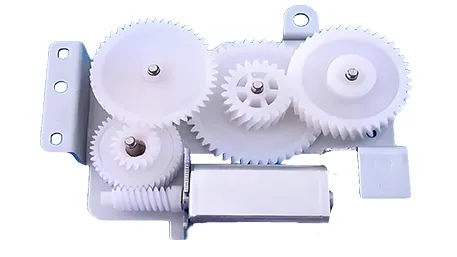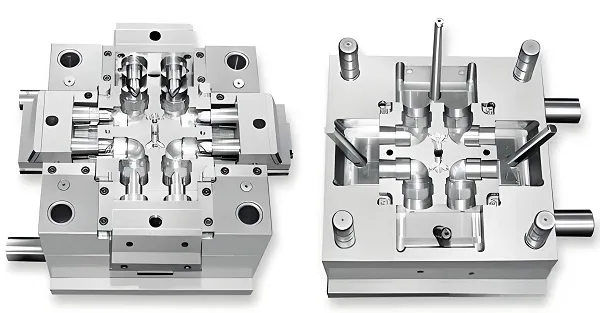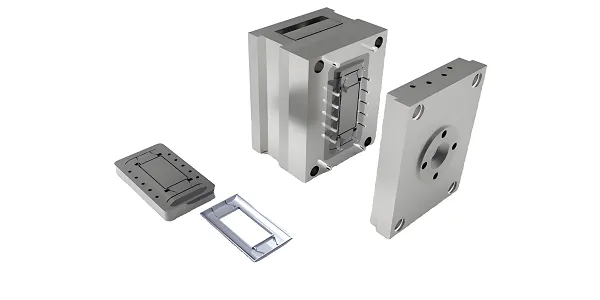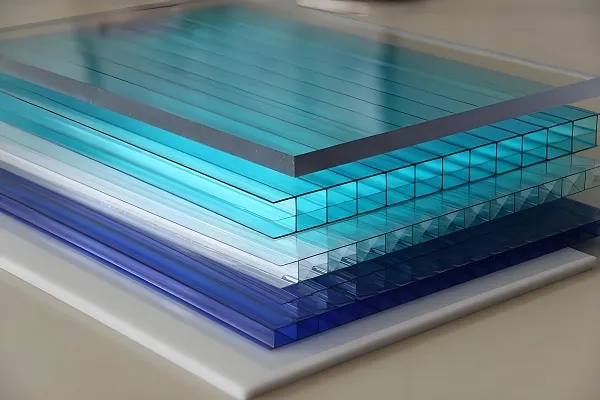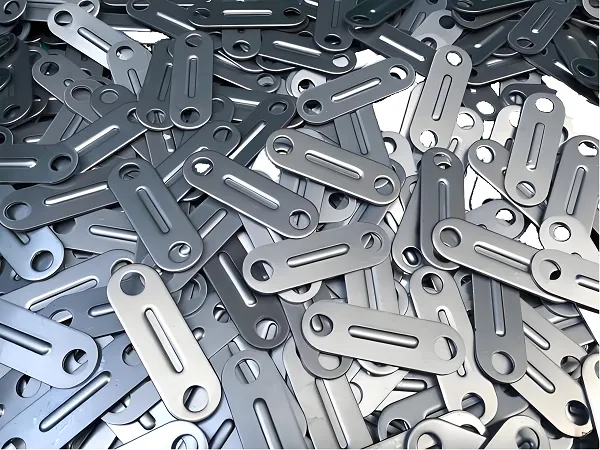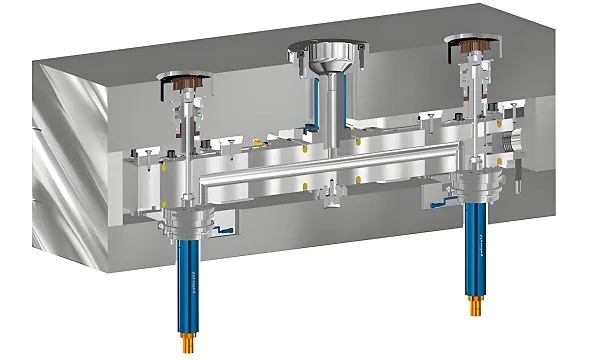Metal Stamping Parts Overview
Metal stamping is a high-volume, cost-effective manufacturing process that transforms flat sheet metal into specific shapes using specialized dies and presses. Custom metal stamping parts are precisely engineered components produced to meet unique design specifications, dimensions, and functional requirements. This process is ideal for creating complex geometries with excellent consistency, tight tolerances, and high strength-to-weight ratios. Customization allows for parts tailored to exact applications, offering significant advantages in performance, assembly efficiency, and overall product design across countless industries. From simple brackets to intricate electronic components, custom stamping delivers precision and scalability.
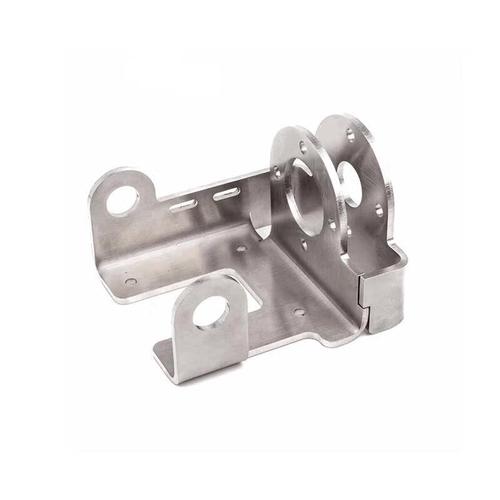
Why Custom Metal Stamping Parts?
-
Unique Requirements: Off-the-shelf parts rarely fit perfectly. Custom stamping creates components designed specifically for your product’s exact size, shape, hole patterns, and functional needs.
-
Optimized Performance: Tailor material, thickness, and features (like bends, flanges, or embossing) to achieve the precise mechanical properties, electrical conductivity, or corrosion resistance required.
-
Cost Efficiency at Scale: While initial tooling requires investment, per-part costs plummet for high-volume production runs, making it exceptionally economical for large quantities.
-
Enhanced Production Efficiency: Custom parts often simplify assembly, reduce the need for secondary operations, and minimize material waste compared to alternative fabrication methods.
-
Consistency & Quality: Stamping dies ensure each part is virtually identical, guaranteeing consistent quality and dimensional accuracy across large batches.
-
Design Freedom: Complex geometries, intricate details, and integrated features (like louvers, ribs, or coined areas) are achievable, enabling innovative product designs.
Metal Stamping Parts Processing Technology
Modern metal stamping utilizes various technologies:
-
Progressive Die Stamping: Multiple stations within a single die perform sequential operations (piercing, bending, forming, cutting) as the metal strip feeds through the press, ideal for complex, high-volume parts.
-
Transfer Die Stamping: Parts are mechanically transferred between separate dies for different operations, suitable for larger or more complex components where progressive stamping isn’t feasible.
-
Compound Die Stamping: Performs multiple operations (e.g., blanking and forming) in a single press stroke at one station, efficient for simpler geometries.
-
Fine Blanking: A specialized process producing parts with exceptionally smooth, sheared edges, precise flatness, and close tolerances, often eliminating secondary machining.
-
Multi-Slide Stamping: Uses multiple slides (rams) operating horizontally and vertically to form complex parts with bends in multiple planes in a single machine.
-
CNC Stamping/Secondary: CNC machining or punching supplements stamping for features impossible to achieve with dies alone or for lower volume needs.
Metal Stamping Parts Processing Flow
The typical custom metal stamping workflow involves:
-
Design & Quoting: Customer provides specifications; manufacturer reviews design for manufacturability (DFM) and provides a quote.
-
Tooling Design & Fabrication: Engineers design precision dies based on the part geometry; toolmakers machine and assemble the dies.
-
Prototype & Testing: Sample parts are stamped for design validation, fit checks, and functional testing.
-
Tooling Approval: Customer approves the samples and the die performance.
-
Material Sourcing: Sheet metal coils or blanks in the specified material and gauge are procured.
-
Production Stamping: Material is fed into presses equipped with the dies; parts are stamped at high speed.
-
Secondary Operations (Optional): Parts may undergo deburring, plating, painting, heat treatment, welding, assembly, or other finishing processes.
-
Quality Control: Rigorous inspection (dimensional checks, visual inspection, functional testing) throughout production ensures compliance.
-
Packaging & Shipping: Finished parts are packaged according to requirements and shipped.
Metal Stamping Parts Materials
A wide array of metals can be stamped, chosen based on application requirements:
-
Steels: Cold Rolled Steel (CRS), Galvanized Steel, Stainless Steel (various grades like 301, 304, 316), High-Strength Low-Alloy (HSLA) Steel, Spring Steel (e.g., 1074, 1095).
-
Aluminum Alloys: Popular for lightweight and corrosion resistance (e.g., 1100, 3003, 5052, 6061).
-
Copper Alloys: Brass, Phosphor Bronze, Beryllium Copper – valued for conductivity, corrosion resistance, and spring properties.
-
Nickel Alloys: For high-temperature or highly corrosive environments (e.g., Inconel).
-
Precious Metals: Gold, Silver (often plated or clad for contacts).
-
Titanium: High strength-to-weight ratio, excellent corrosion resistance (more challenging to stamp).
Factors influencing choice: strength, hardness, ductility, conductivity, corrosion resistance, formability, weight, appearance, and cost.
Metal Stamping Parts Applications
Custom stamped parts are ubiquitous across industries:
-
Automotive: Brackets, clips, terminals, connectors, engine components, seat frames, structural reinforcements, sensors.
-
Electronics: Shielding cans, contacts, connectors, leadframes, heat sinks, battery components, chassis parts.
-
Appliances: Housings, panels, hinges, springs, heating elements, controls.
-
Medical Devices: Surgical instruments, implantable components (special materials), enclosures, diagnostic equipment parts.
-
Aerospace: Structural components, brackets, clips, electrical contacts, heat shields.
-
Industrial Machinery: Gears, levers, springs, guards, couplings, fasteners.
-
Consumer Goods: Hardware, locks, fittings, cookware, decorative elements.
-
Renewable Energy: Solar panel frames, inverter components, wind turbine electrical parts.
Metal Stamping Parts Performance Enhancement
Stamped parts can be enhanced for superior performance:
-
Surface Finishes: Plating (Zinc, Nickel, Tin, Chromium, Gold), Powder Coating, Painting, Anodizing (Aluminum), Passivation (Stainless Steel).
-
Heat Treatment: Tempering, Annealing, Hardening to alter material properties like strength, hardness, or ductility.
-
Deburring: Removing sharp edges (tumbling, vibratory finishing, abrasive blasting, chemical deburring).
-
Special Forming: Coining (precision dimensioning/smoothing), Embossing (raised designs/text), Drawing (forming deep cups/shapes).
-
Joining: Welding (Spot, Laser, TIG), Riveting, Clinching, Brazing for assembly.
-
Lubrication: Applying dry film lubricants or oils for reduced friction/wear.
Metal Stamping Parts Common Questions
-
What are the typical tolerances achievable? Tolerances depend on material, thickness, complexity, and process (e.g., ±0.001″ to ±0.010″ or tighter with fine blanking). Discuss specifics with your stamper.
-
How expensive is tooling (die cost)? Tooling is a significant upfront investment, varying greatly based on part size, complexity, and required precision. High-volume production amortizes this cost effectively.
-
What are minimum order quantities (MOQs)? MOQs vary by stamper. While high-volume is most cost-effective, many offer lower MOQs, especially with shared tooling or using CNC for prototypes/short runs.
-
How long does tooling take? Lead times range from weeks to months, depending on die complexity and shop workload. Prototyping (using soft tooling or CNC) is faster.
-
Can you help with Design for Manufacturability (DFM)? Reputable stampers offer DFM analysis to optimize your design for efficient, cost-effective production, suggesting changes to radii, hole sizes, bend allowances, etc.
-
What materials are best for my application? Stampers provide material recommendations based on your functional requirements, environmental conditions, and budget.
-
What secondary services do you offer? Many stampers provide finishing, heat treatment, assembly, and packaging as value-added services.
Unlock Precision & Efficiency with Your Custom Stamped Parts!
Ready to transform your designs into high-quality, cost-effective metal components? Our expert team specializes in custom metal stamping solutions tailored to your exact specifications. From DFM support to advanced tooling and high-volume production, we deliver precision, consistency, and performance. Contact us today for a quote or consultation! Submit your requirements and let’s engineer success together.

